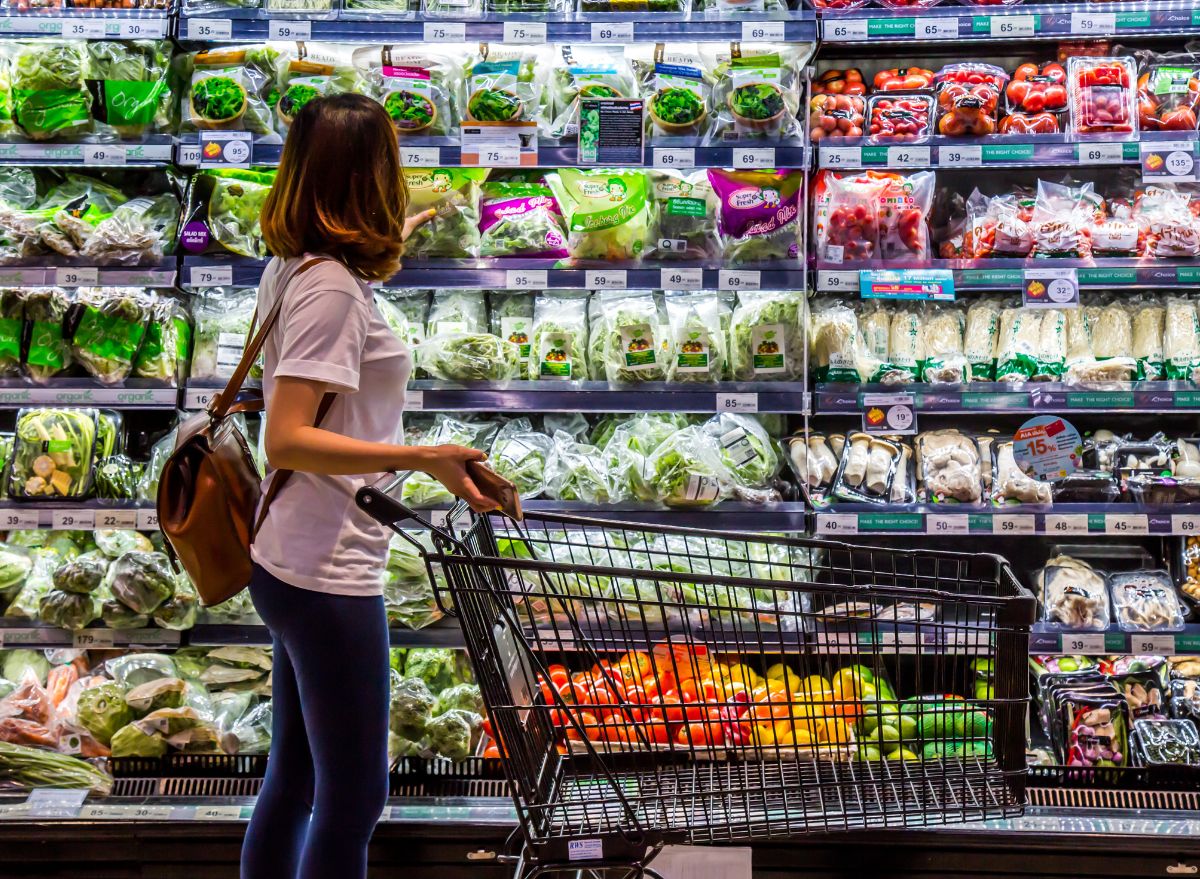This Is the #1 Most “Risky” Recalled Food at the Grocery Store, New Report Says

Food is a necessity, but it can also be a hazard. When you’re not careful, what you consume can pose major risks to your health and safety. Some of the most basic grocery store staples, like coffee and dairy products, have caused dangerous outbreaks of illnesses linked to viruses and bacteria such as salmonella, listeria, and E. coli.
Earlier this month, for example, Florida oysters that had been distributed across at least three states were recalled after being linked to an outbreak of salmonella. Frozen fruit sold at several retailers, including Costco, Trader Joe’s, and Aldi, was also recalled in March due to potential hepatitis A contamination.
Considering all of the recalls that have already been issued in 2023 alone, consumers may be wondering if certain foods are particularly hazardous when it comes to foodborne illness. Helpfully, a nonprofit that examines consumer products and services recently set out to answer that question, and just released some telling findings.
Food safety experts with Consumer Reports looked into food recalls and foodborne disease outbreaks from 2017 to 2022, analyzing data from the Centers for Disease Control and Prevention, Food and Drug Administration, and Agriculture Department. The group then compiled a list of 10 especially “risky” food items using data on how many people died or became ill from the products, how many times these types of food had been recalled, and the total amount of each type of food that was recalled.
In what will be a tough blow for salad lovers, Consumer Reports ranked leafy greens as the most risky grocery item out of the 10 on the list. The food safety experts found that 11 deaths had been linked to recalled leafy greens—like romaine lettuce and bagged salad—due to E. coli and listeria contamination. This was the highest number of fatalities connected to any of the foods on the list. Leafy greens were also linked to the third highest number of illnesses on the list, 614, and the second highest number of recalls, 50.
Brian Ronholm, director of food policy at Consumer Reports, explained that the reason the leafy greens are linked to so many foodborne illnesses is likely contaminated water used to water fields in California and Arizona. Even if greens aren’t contaminated by water during the growing process, contamination has the potential to spread quickly between products inside processing plants because packaged salad greens are processed at a somewhat small number of facilities in the country.
For consumers who want to protect themselves from any potential foodborne illnesses in leafy greens, the Consumer Reports experts suggested buying whole-head lettuce instead of bagged or boxed lettuce and removing the outer lettuce leaves, where bacteria can often lurk. Consumers can also spring for hydroponic and greenhouse-grown lettuce since they’re less likely to be contaminated by animal droppings, or consider trying cooked greens like kale and collards since heating can kill bacteria.
While leafy greens topped the risky list, cheese and deli meat were both runners-up with a combined seven deaths and 409 illnesses. Ground beef placed third with two deaths and 643 illnesses.
Ronholm stressed that Consumer Reports isn’t instructing shoppers to avoid these foods entirely. However, the list backs up the “importance of following best food safety practices with all of your foods, including knowing how to track, and respond, to food recalls when they happen,” he said in the article.
For the complete lineup of risky grocery products, as well as tips on how to mitigate any risks associated with them, check out the full list at Consumer Reports.









